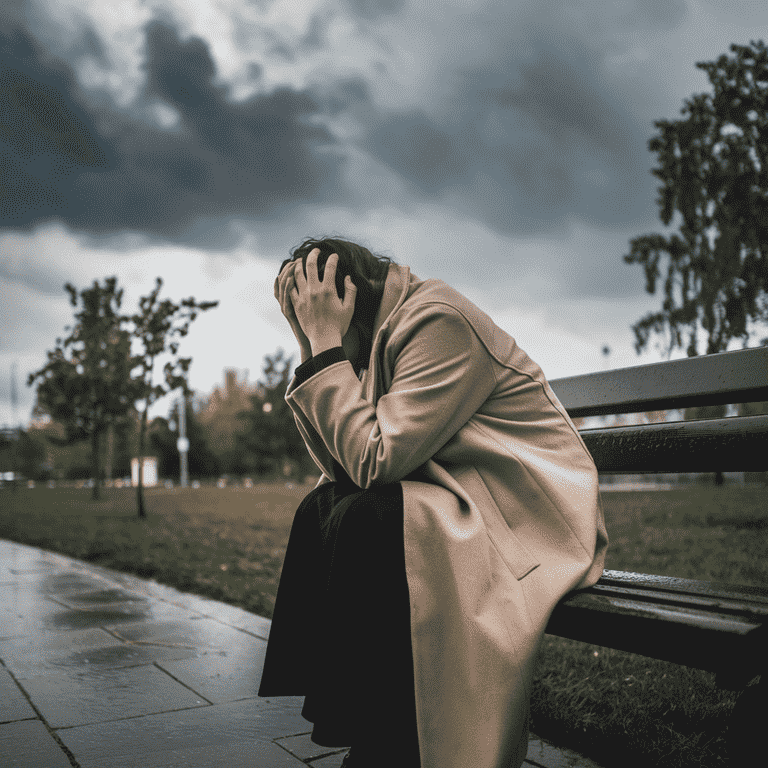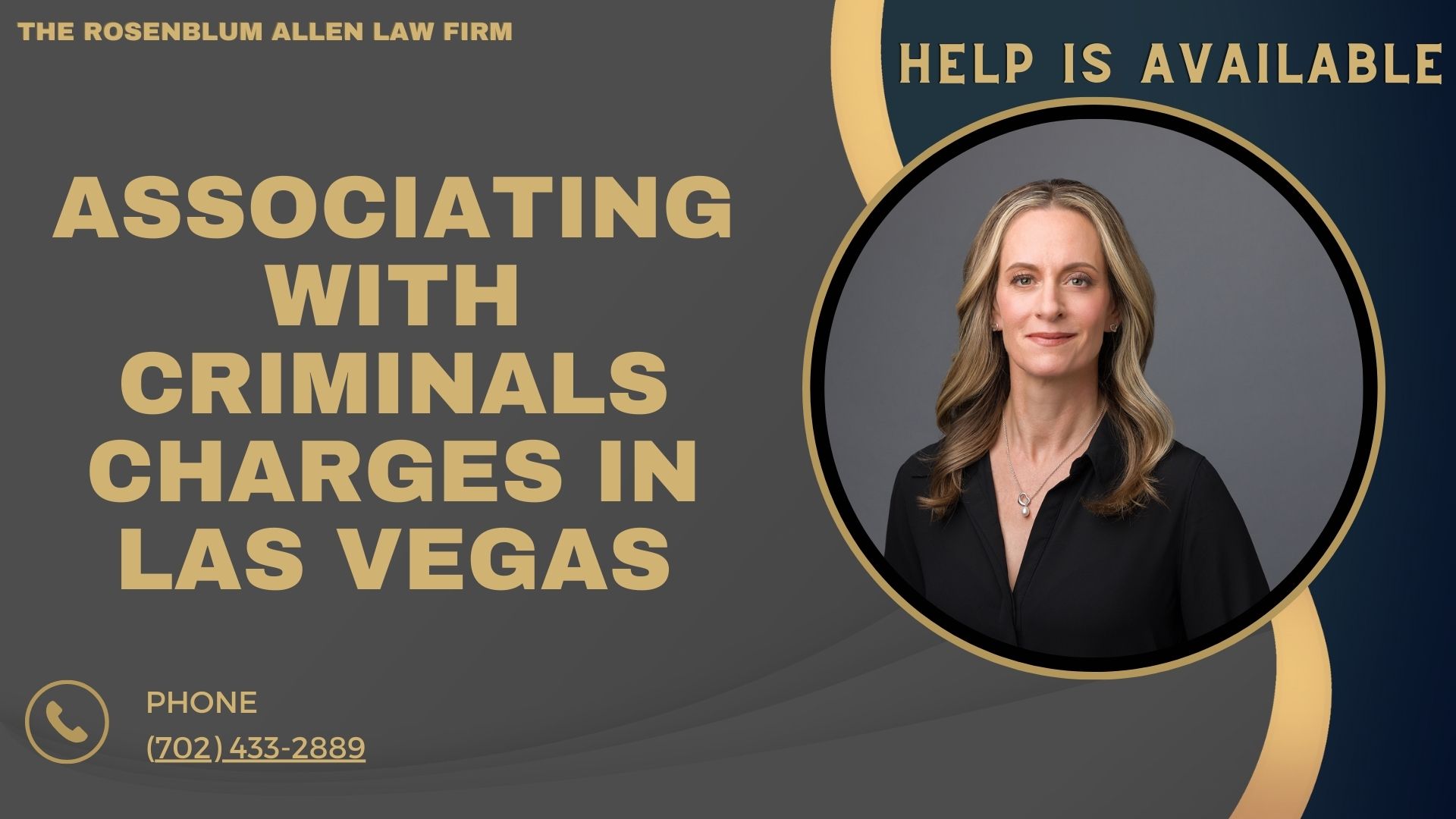When we hear the phrase “associating with criminals,” we might conjure up images from movies or TV shows. But the reality is far more complex and can have serious implications for anyone involved. Let’s explore what this really means and how it can affect your life.
Defining Criminal Association
Have you ever wondered what exactly counts as “associating with criminals”? It’s sometimes more clear-cut than you might think. Let’s break it down.
Types of Criminal Associations
Criminal associations come in various forms, and it’s essential to understand the differences:
- Direct involvement: This is when you actively participate in criminal activities. It’s the most obvious and risky form of association.
- Indirect involvement: You might not commit crimes yourself, but you’re aware of criminal activities and possibly benefiting from them.
- Family connections: Sometimes, you don’t choose your associations. Having family members involved in criminal activities can put you in a tricky spot.
Legal Definitions
The law has its way of looking at criminal associations:
- Accomplice liability: This legal concept holds you responsible for aiding or encouraging a crime, even if you didn’t commit it yourself.
- Conspiracy laws: These laws can implicate you for agreeing to commit a crime, even if the crime never actually happens.
Impact on Personal Life
Associating with criminals isn’t just a legal issue. It can turn your personal life upside down.
Social Consequences
The social fallout can be severe:
- Stigmatization: People might view you differently, even if you haven’t done anything wrong.
- Loss of reputation: Your professional and personal relationships could suffer as people question your judgment and character.

Psychological Effects
The mental toll can be just as heavy:
- Increased stress and anxiety: Worrying about legal troubles or social judgment can wear you down.
- Altered self-perception: You might start to question your own identity and values.
Legal Implications
Let’s face it: hanging out with the wrong crowd can land you in hot water with the law. It’s not just about getting caught red-handed; the legal system has ways of holding you accountable even if you’re on the sidelines.
Criminal Liability
The law doesn’t mess around when it comes to criminal associations:
- Accessory charges: Have you ever heard the phrase “guilty by association”? That’s not just a saying. You could be charged as an accessory if you help or encourage criminal activity, even in small ways.
- RICO Act implications: This isn’t just for mob bosses in movies. The Racketeer Influenced and Corrupt Organizations Act can come after you for being part of a criminal enterprise, even if you’re not the mastermind.
Civil Consequences
It’s not just about jail time. Your wallet could take a hit, too:
- Asset forfeiture: The government can seize your property if they believe it’s connected to criminal activity. That fancy car or a new house? Gone in the blink of an eye.
- Loss of professional licenses: Your career could be on the line. Many professions require a clean record, and associating with criminals could cost you your license to practice.
Influence on Behavior
Have you ever heard the saying, “You are the company you keep”? This couldn’t be more true when it comes to criminal associations.
Criminal Thinking Patterns
Hanging around criminals can warp your perspective:
- Normalization of illegal activities: It seems normal when constantly exposed to criminal behavior. What once shocked you might become just another Tuesday.
- Justification of criminal acts: You might make excuses for illegal actions. “It’s not hurting anyone” or “everyone does it” become common thoughts.

Risk Factors for Criminal Behavior
It’s a slippery slope:
- Peer pressure: It’s not just for teenagers. Adults can feel pressured to fit in with their social circle, even if it means breaking the law.
- Exposure to criminal opportunities: In that world, opportunities for quick, illegal money can seem tempting, especially if you’re struggling financially.
Breaking the Cycle
Alright, you’ve been in a sticky situation with some not-so-great company. Don’t worry; it’s not the end of the road. There’s always a way out; many have successfully turned their lives around.
Rehabilitation Programs
These aren’t just for show – they can be real lifelines:
- Cognitive-behavioral therapy (CBT) isn’t your grandma’s couch therapy. It helps you rewire your brain, challenging those criminal thinking patterns we talked about earlier.
- Substance abuse treatment: Often, drug and alcohol issues go hand-in-hand with criminal associations. Tackling these can be a game-changer.
Community Support
You don’t have to go it alone:
- Mentorship programs: Imagine having a personal guide who’s been there, done that, and come out the other side. That’s what a good mentor can be.
- Job training and education: Sometimes, a new skill set is all that is needed to open doors to legitimate opportunities.
Prevention Strategies
An ounce of prevention is worth a pound of cure, right? Let’s talk about nipping this problem in the bud.

Early Intervention
Catching potential issues early can make all the difference:
- Youth outreach programs can be a lifeline for kids who risk falling into the wrong crowd. Think sports leagues, after-school clubs, or community centers.
- School-based initiatives: Schools are on the front lines. Programs that teach conflict resolution, critical thinking, and life skills can be powerful tools.
Public Awareness
Knowledge is power, folks:
- Education campaigns: Have you ever seen those “Just Say No” ads? While they seem cheesy, public awareness campaigns can make a difference.
- Community policing efforts: When cops are seen as part of the community rather than outsiders, the dynamic can change.
Remember, prevention isn’t just about avoiding bad influences. It’s about building a robust and supportive community where crime seems like something other than a viable option. It takes a village, as they say.

Whether trying to avoid these pitfalls or looking for a way out, knowledge is your best friend. Understanding the risks, recognizing the signs, and knowing where to turn for help can make all the difference. So, what’s your next move?
It could be reaching out to a mentor, joining a support group, or taking a hard look at your social circle. Whatever it is, remember this: you’ve got the power to write your own story. Make it a good one. Stay strong, stay informed, and most importantly, stay true to yourself. The road might be challenging, but trust me, it’s worth it. You’ve got this!

Frequently Asked Questions
Q: Can I be arrested just for being friends with someone who commits crimes?
A: Generally, no. However, if you knowingly assist in criminal activities or fail to report serious crimes, you could face legal consequences. Maintaining clear boundaries and avoiding involvement in illegal activities is essential.
Q: How can I tell if someone I know is involved in criminal activities?
A: Look for signs like unexplained wealth, secretive behavior, frequent encounters with law enforcement, or pressure on you to participate in suspicious activities. Trust your instincts and be cautious if something feels off.
Q: What should I do if I suspect a family member is involved in criminal activities?
A: This is a delicate situation. Consider having an open, non-judgmental conversation with them. If you’re concerned about your safety or theirs, seek advice from a counselor or legal professional. Remember, your well-being should be the priority.
Q: Can associating with criminals affect my custody rights?
A: Yes, it can. Courts consider the child’s best interests, including their safety and the environments they’re exposed to. Associating with known criminals could be seen as putting a child at risk.
Q: How might criminal associations impact my ability to travel internationally?
A: Some countries may deny entry based on criminal associations, even without a conviction. This can affect visa applications and border crossings. It’s best to check specific country requirements before planning international travel.
Q: Are there support groups for people trying to distance themselves from criminal associations?
A: Many communities offer support groups like Criminals and Gang Members Anonymous or specific programs through local community centers. Online forums and counseling services can also provide support and guidance.
Q: How can employers find out about my criminal associations?
A: Employers might discover this through background checks, social media investigations, or references. In some cases, they may have access to law enforcement databases that flag known associates of criminals.
Q: Can I lose my security clearance due to someone else’s criminal activities?
A: Potentially, yes. Security clearances often consider your associations. If you’re aware of a close associate’s criminal activities and fail to report it, or if the association is deemed a security risk, your clearance could be jeopardized.
Q: How do I explain gaps in my resume due to incarceration or association with criminals?
A: Be honest but strategic. Focus on what you learned, skills you developed, and how you’ve changed. Many employers appreciate candor and evidence of personal growth.
Q: Are there careers I should avoid if I have a history of criminal associations?
A: Careers in law enforcement, education, healthcare, and finance often have stricter background check requirements. However, many fields are becoming more open to giving second chances. Research specific industry requirements and consider seeking advice from a career counselor.

Glossary
Associating with Criminals: This legal charge can be applied to individuals who are found to be regularly interacting with people known to be involved in criminal activities.
Defense Attorney: A lawyer representing a person accused of a crime, protecting their rights and ensuring they receive a fair trial.
Legal Representation: Having a lawyer defend your interests in legal proceedings.
Charge: In criminal law, a charge is an official accusation that a person has committed a crime.
Prosecution: The party responsible for presenting the case against a person accused of a crime in a criminal trial.
Guilty Verdict: A decision by a judge or jury that the person accused did commit the crime.
Plea Deal: An agreement in a criminal case where the accused agrees to plead guilty to a particular charge in return for some concession from the prosecutor, such as a lighter sentence or a reduction in charges.
Evidence: Information used in a legal case to show the court that a particular version of events is true or false. This includes witness statements, videos, photographs, and documents.
Legal Process: The procedures involved in the justice system, including the steps from arrest, charge, trial, and, if found guilty, sentencing.
Criminal Record: A record of a person’s past criminal convictions.
Community Service: A penalty that requires the offender to perform a certain amount of unpaid labor as part of their sentence.
Case Outcome: The final result of a legal case, such as a guilty or not guilty verdict or the terms of a plea deal.
Additional Resources for You

Molly Rosenblum, Esq., our lead attorney, has meticulously developed a series of resources to assist individuals facing legal challenges in various areas of criminal defense. These resources, available on the Rosenblum Law website, are designed to provide essential information, guidance, and support for those navigating the complexities of criminal law. Here’s a brief overview of the valuable resources created to help you in times of need:
Criminal Defense Attorneys: A comprehensive guide to criminal defense services offered, covering a wide range of charges. Explore the guide.
Las Vegas DUI Lawyer: Specialized support and legal advice for those facing DUI charges in Las Vegas. Learn more.
Domestic Violence Lawyer Las Vegas: Effective legal representation and guidance for individuals accused of domestic violence. Get support.
Drug Possession Lawyer: Assistance for those charged with drug possession, offering defense strategies and legal counsel. Find help.
Sex Crimes Attorney: Specialized defense for individuals accused of sex crimes, ensuring their rights are protected. Discover your options.
CPS Defense Attorney: Legal representation for those involved in child abuse and neglect cases, including CPS investigations. Understand your rights.
Misdemeanor Lawyer: Guidance and defense services for those facing misdemeanor charges. Seek representation.
Juvenile Defense Lawyers: Dedicated support for young individuals facing criminal charges, focusing on juvenile justice. Learn about juvenile defense.
Las Vegas Warrant Defense Attorney: Assistance for individuals with outstanding warrants, aiming to resolve such issues effectively. Address your warrant.
Las Vegas Probation Violation Attorney: Legal advice and representation for probation violation matters. Explore probation services.
Theft Crime Defense Lawyer: Defense strategies for those accused of theft, focusing on protecting your rights and reputation. Defend against theft charges.
Kidnapping Lawyers: Expertise in defending against kidnapping charges, providing a robust defense for those accused. Get legal help.
Firearms Lawyer Las Vegas: Legal representation for firearms-related charges, ensuring compliance with Nevada laws. Understand firearms law.
Through these resources, Molly Rosenblum, Esq., aims to empower individuals with the knowledge and legal support needed to navigate their legal challenges effectively. We encourage you to utilize these resources, ensuring you have access to effective legal advice and representation tailored to your specific needs.

Offsite Resources for You
Here are seven offsite resources that may provide additional useful information related to the topic:
American Bar Association: The ABA provides a wealth of resources on many legal topics, including criminal defense.
National Association of Criminal Defense Lawyers: NACDL offers resources and information for both legal professionals and individuals facing criminal charges.
American Civil Liberties Union: The ACLU provides resources on civil rights and liberties, which can be essential in criminal defense cases.
FindLaw: FindLaw offers a vast library of legal information, including specific laws by state and the basics of criminal legal proceedings.
National Legal Aid & Defender Association: NLADA provides resources and advocacy for those in need of legal defense, particularly for underserved communities.
Legal Information Institute – Cornell Law School: The LII offers a comprehensive, freely accessible, online law library.
The Innocence Project: This organization works to exonerate the wrongly convicted through DNA testing and reforms in the criminal justice system.
Remember, while these resources can provide valuable information, they are not a substitute for personalized legal advice from a licensed professional. Always consult with a lawyer about your specific situation.
Why You Haven't Already Hired a Defense Attorney to Help You
Watch this short video to take the next big step toward defending your rights against your felony charge.

A Special Message from Our Lead Attorney

Molly Rosenblum
Dear Reader,
Thank you so much for taking the time to explore these resources related to associating with criminals. I.e., they provided valuable insights and a clearer understanding of this serious matter.
Navigating the legal landscape can be daunting, especially when dealing with criminal charges. Remember, you don’t have to do it alone. Our team is here to guide you every step of the way, providing the legal support and guidance you need during this challenging time.
I invite you to schedule a free consultation with our team. During this meeting, we can discuss your case in detail, answer any questions you may have, and begin to develop a strategy tailored to your specific situation.
You can reach us at (702) 433-2889. We’re looking forward to the opportunity to assist you.
Best Regards,
Molly Rosenblum, Esq.




